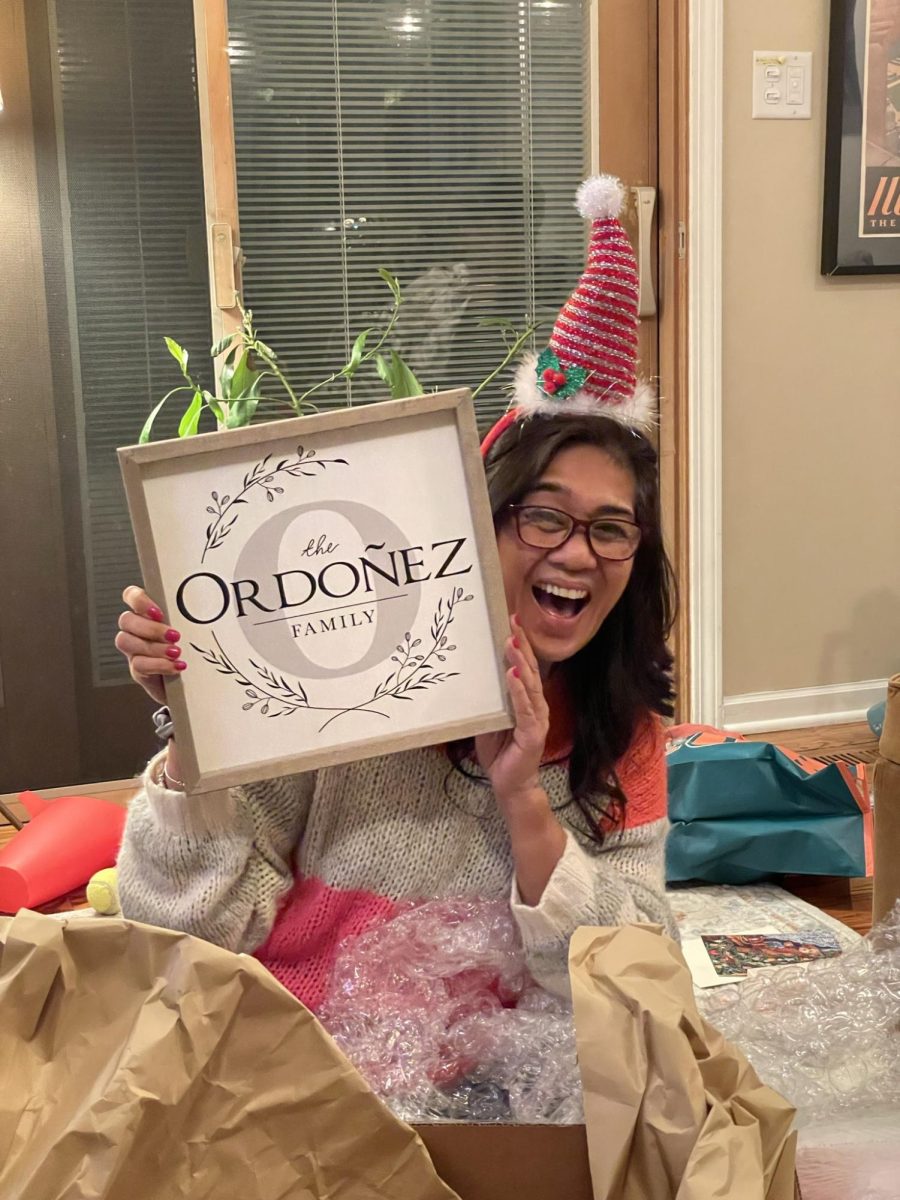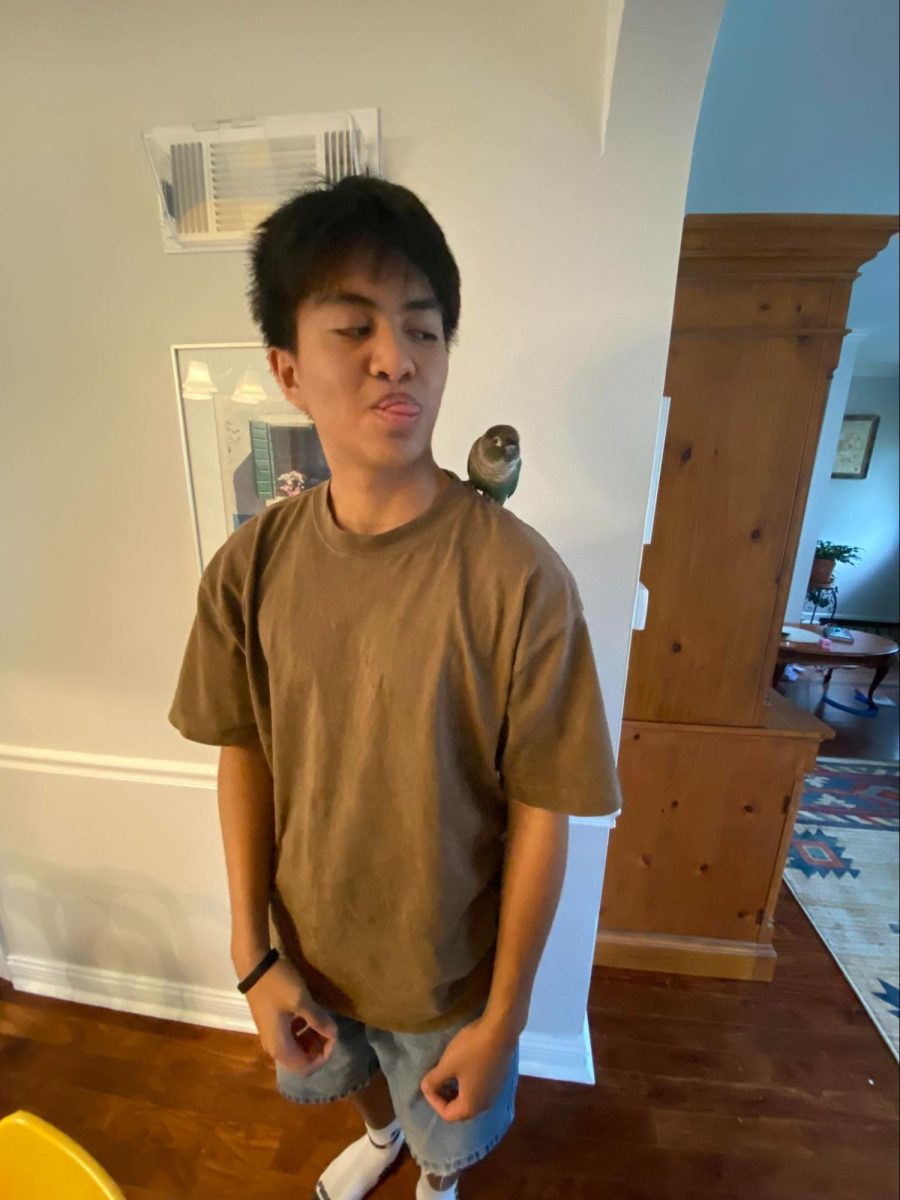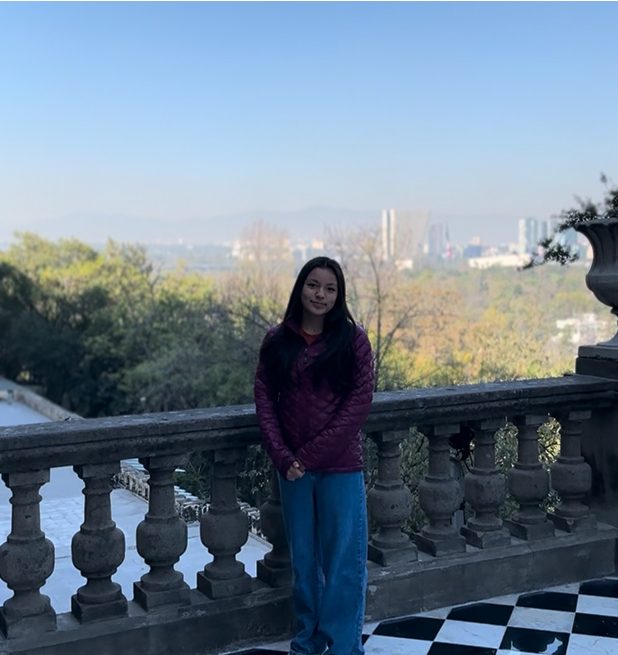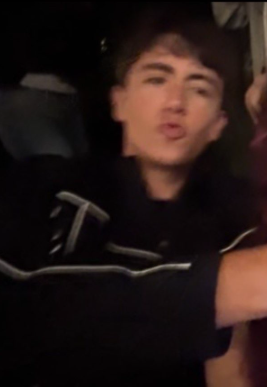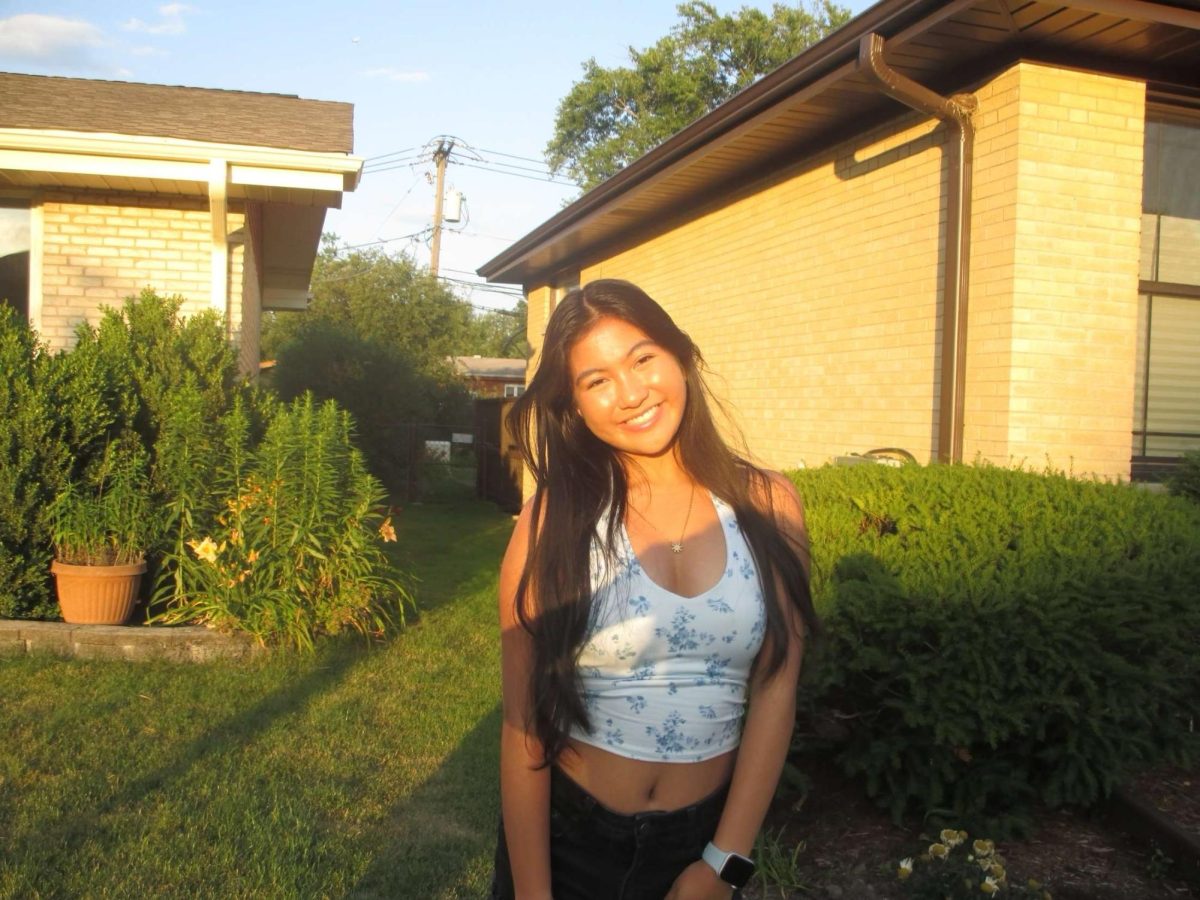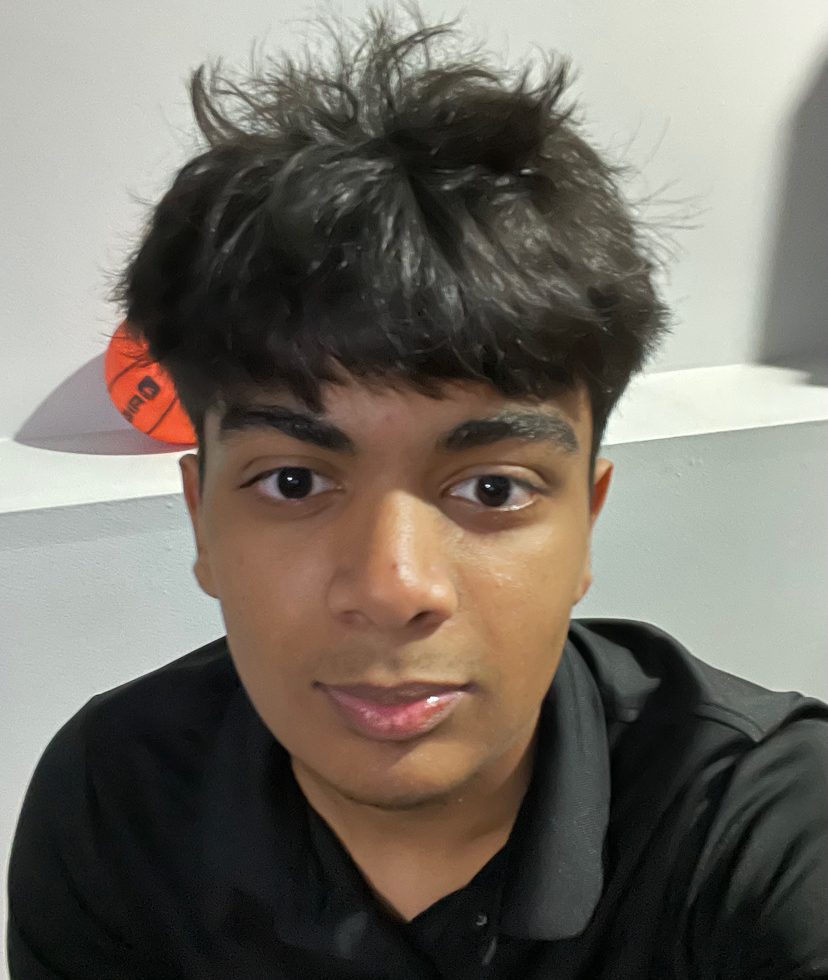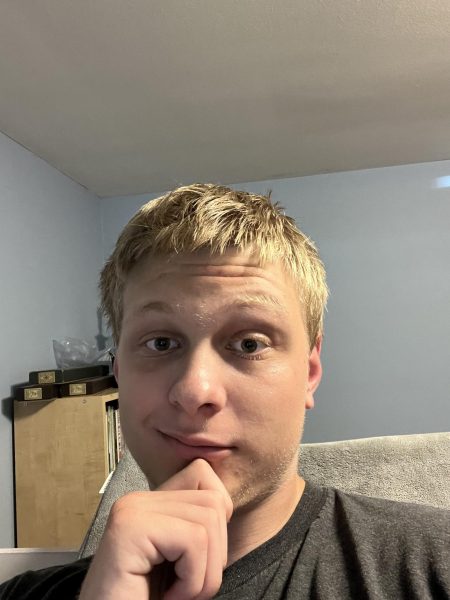Please tell me your name, department, and pronouns? Jean Ordoñez, English Department, she/her.
How long have you been teaching? Since 1990 at Niles North so, that’s 33 years. My first year of teaching was in 1989 at Argo High School in Summit, IL.
Where would you travel if you could go anywhere in the world? Spain. It’s been on my bucket list for a very long time. When I was in my twenties, I had travel books [on] Spain and Italy, and I really just poured over these books. And then I got a job, and I never got to go to Spain and Italy. I live vicariously through my friends who’ve traveled to these beautiful places, and they give me so many recommendations. I think, after I retire in May, I’ll be going there. Definitely Spain first, then Italy. Which reminds me – I need to renew my passport, YIKES!
What’s the appeal of Spain and Italy to you? The culture, the food, the history–the beauty. And I like to travel to places where people who aren’t familiar with the area are [welcome]. I do know that Spain is very welcoming, and not only that, I know enough Spanish to get me through if nobody speaks English. I grew up in a bilingual household, and when I grew up, my mom and dad spoke a lot of Tagalog and Bicol (which is their region in the Philippines). A lot of that is steeped in Spanish. Plus, I took Spanish in high school, so if I can understand the bits and pieces of the Spanish language, I should be okay. I can’t speak it back very well, but if I can understand, that’s a plus!
It’s interesting that you grew up in a house where Tagalog and Bicol were spoken. Are you still fluent in either of those? Absolutely not. Only because, when I grew up in the ‘70s, my family emigrated from the Philippines and education was number one on their list, and in order to make the most of an American education, they told us children not to speak the second language. They told us, “You have to learn English,” because schools did not have EL programs back then. And so, even though my parents spoke Tagalog and Bicol, they never told us to do it as well, because our job was to learn in America, and school was not going to provide us with any support for learning English. So we had it hard.
How has that affected you? For me, not so bad, but for my siblings, pretty bad, because my siblings emigrated from the Philippines. I was the only child in my family who was born in the United States so I learned English right away. Everybody [else] was born in the Philippines, so for them, I did see the difficulties. My one sister, Juliet (I’m the youngest of five), was actually held back in first grade of all things, because she couldn’t speak English well enough. She’s very smart, she’s a nurse, she’s very accomplished, but because the educational system back in the ‘70s was not equipped to accommodate people who spoke different languages, [it] really did her a disservice. I’m so glad that over the past 50 years, the educational system has improved and provided assistance to English Language learners while embracing cultural diversity and preservation of each person’s language. That’s a HUGE improvement!
Which celebrity do you most want to meet? Oh, [actor] Jason Bateman, for sure! Haha! He’s smart, he’s funny and to be funny, you have to be incredibly intelligent, and he gets it. But another thing that I think is really interesting about him is his eating habits and his devotion to cleanliness. It’s not like I want to eat like him and be clean like him, but I think it’s just hilarious. He’s very particular about how he orders his food and how he eats his food….Also, I don’t know if you know this, but Jason Bateman doesn’t have a high school diploma. And he talks about it, openly, very openly–so he asks other people, ‘How did you get your education? How do you feel about education?” Stuff like that. Yeah, I would love to meet him to see what makes him tick.
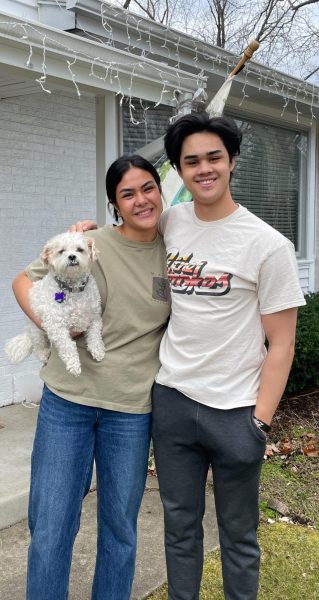
What is your proudest moment? It has to be tied to my children. I have two kids, who are now 18 and 20 years old. I can’t say it’s my proudest moment; I can say I am so proud of who they’re becoming as young adults. I’ve worked hard to parent them in a way that promotes good values and encourages them to discover their independence. Whenever I see them–because they’re both in college–I’m just wildly proud of who they’re becoming. Not what they’ve accomplished necessarily–because they’ve accomplished a lot–but who they’ve become, as people. I’m excited about the next few decades, to see what their futures hold. As a single mom, I feel good about that.
It’s interesting that you make a distinction between what they’ve accomplished and who they’ve become. Yeah. To me, there is a notable difference. I think you can have a wall of accolades and diplomas and awards and whatnot, but who are you? How are you treating people? How are you treating yourself? How are you contributing to this greater picture? The day-to-day of how you carry yourself and affect others brings about a genuineness that no awards will recognize, yet everyone around will feel. I think that’s what life is all about.
Why did you decide to become a teacher? I tell my students this at the beginning of every class. I became a teacher because I love to learn, I love to watch people learn, and help them learn. I know that there are a ton of different types of learners. But the one reason I didn’t become a teacher is to be the know-it-all in the room. I never want to be the smartest person in the room and everybody idolizes me and everything like that. Don’t get me wrong, I know things. I remind students that the difference between them and me is time. I’ve been on the Earth longer than [other] people, so I have accumulated a significant amount of experience, but it doesn’t make me smarter than you. It just means that I’ve accumulated more knowledge and here’s the kicker: I’m willing to share it. In return, I welcome the opportunity to learn so many things from my students, topics ranging from pop culture to politics, to history, and their backgrounds, travel, language, and so forth. This type of genuine information exchange is what I consider prime learning moments to have on campus. I consider this one of the absolute joys of education, no rubrics/data involved, but extremely worthwhile and formative exchanges of information.
What makes your day better? A good night’s sleep, tasty nutrition – but I do like my sweets! Downtime, but not nap time. I’ve never been good at waking up from a nap. Quality time with my friends, family, and dog, Harold- who is basically a lovable human! As for teaching, my day gets better when I feel like I did what I could by the time I go to sleep. What’s exciting about teaching is that no two school days are ever the same. And if I did what I could in order to meet the end goal of the day, then I feel good. If I feel like I missed out on something, or I skipped a beat, then I need to go back and revise. And it doesn’t make that a bad day, it just…takes a little more time for me to reset/reframe. I don’t get down on myself, but I just know that I need to work harder.
Whom in your life do you most look up to? I would have to say my parents, because they were an immigrant family–a couple–and they sacrificed so much for their children. At the time, being children, we didn’t know how much they sacrificed. I tell my family’s immigration story to my students because I know that many of our students come from immigration [sic] families as well, and coming to America is an amazingly hard adjustment today, and coming to America back in the ‘70s was just as difficult, if not more. And so, I look up to my parents, because of the amount of sacrifice, the amount of planning, the amount of risk that they had to take in order to come to America…I’m forever grateful.
They had to bring my brothers and sisters over one year at a time. So, I was born in 1967, in America, and then, in 1968 they brought my older brother over, and then in 1969 they brought my sister over, Joy, and then in 1970 they brought over my sister Juliet, and then in ‘72, they brought over my sister Joni; so, we weren’t a whole family until I was five years old. When I tell people that, and they’re kinda surprised, because most people are just used to having a family unit, and one sibling is born, and then another sibling is born, and another sibling. For me it was very different because, when I was born, I met my older siblings much later.
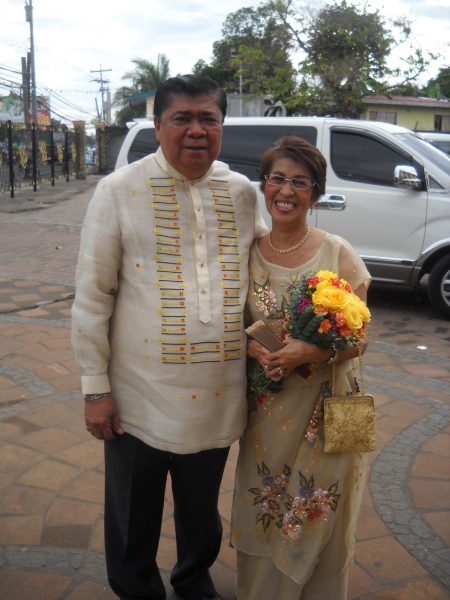
That took a lot of planning, for my parents, and a lot of sacrifice. My mom, who gave birth to my sister Joni…she gave birth to her, and then left for America to be with my dad, who was in a graduate program at Iowa State (he was in a fellowship program to earn his civil engineer degree). My mom didn’t get to reunite with Joni until she was six years old, and my dad met Joni for the first time then, too. Can you imagine?
My brothers and sisters were all loved and cared for by my mom’s huge family and my dad’s huge family–if you know the Filipino culture, everybody is everybody’s cousin, family sister, brother. I think that’s a big reason why I build a lot of community in my classroom because I grew up with a strong sense of community. Once you know you have a community, you feel like anything is possible.
Unfortunately, my parents are no longer alive …. but I always feel their presence around me. I don’t know if you know when you see a cardinal, sometimes people say that that’s somebody from the other side saying hi to you. And so I have two bird feeders in my backyard, and I always see cardinals–a male cardinal and a female cardinal, and whenever I see them in the backyard, I’m like, “Hi, Mom! Hi, Dad!” They’re always just there! Luckily they got to meet my kids. I tell stories to my kids about them so their memory of them is still very alive. It’s been a while since I’ve seen them, but I always know they are around, guiding and showing up in ways I’d least expect it. Like times ranging from when I find an amazing parking spot to when I get through an extremely challenging moment in my life, I usually look up to the sky and say, “Thanks, Mom and Dad!”


